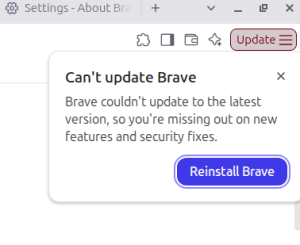Shane Liddell, Cryptoconomy Summit and Cryptologist
Shane Liddell is CEO at Cryptologist and Co-Founder of the Cryptoconomy Summit. He became active within the crowdsale industry early in 2012, seizing the opportunity to offer help to crowdfunders from all corners of the world. Shane has since delivered successful campaigns for entrepreneurs, startups, corporations and filmmakers and has assisted over 500 crowdfunders with campaign development, consulting, marketing and promotion services, some of whom have raised millions of dollars in the process. Shane has attended numerous equity crowdfunding industry events, including the SEC Small Business Forum and the CfPA Summit in Washington DC. He also served as the Executive Director of the Crowdfunding Professional Association (CfPA) 2016-2017.
The Cryptoconomy Summit will be March 28-29 this year. I caught up with Shane Liddel for this interview.
Heidi: What would an elevator pitch for Cryptoconomy Summit sound like?
Shane Liddell: What would it sound like? Well, we are trying to set the pace as an event. The crypto industry is huge, it’s growing like crazy. You know, I’ve learned lessons in the past, but one of the most important things with growing a market, is educating the population.
The be-all and end-all of the Cryptoconomy Summit, our first objective, of course, is to educate people about this new crypto industry, blockchain, and we’re bringing speakers—thought leaders, as we refer to them—from all over the globe to share their experience, share their knowledge and to educate our attendees.
Second on our list is diversity. I’ve been watching the industry. I’ve spent six years in the crowdfunding industry, I attended a lot of events. Rather than speak to the organizers, I spent time speaking to the attendees and listened to a lot of the problems and we’re hoping to address them.
Some of the attendees at other events have more or less said that they didn’t feel too good afterward because it was too pitched orientated, where they got a feeling that all that was happening is companies flogging their wares. So, I took note of all these things and we’re bringing an event to market whereby we don’t want people to leave our event thinking they’ve dome to a pitch show and all that they have done is pitch different service providers and so on.
We’re bringing a lot of women and people of color to our event. We’re trying to say, this is 2018, this is not 1963, so we’ve made a specific effort to include all people in our event.
Heidi: I understand you’re also the CEO of Cryptologist?
Shane Liddell: Yes.
Heidi: What can you tell me about Cryptologist?
Shane Liddell: My experience is crowdfunding-related. I’ve spent 12 years in the industry. I see so many similarities with what’s going on today in the crypto-ICO space, as I lived through in the crowdfunding industry. When I got into crowdfunding, just to put things into perspective, there were around about 30 to 40 new campaigns a week on the Indiegogo platform. Today there are 3-400 some weeks. So, I got in very early.
One of the things a cryptologist does is consult. Of course, I’m one of the lead consultants. Whereby for us, it was a very easy pivot out of the crowdfunding industry, which is a form of crowd sale, into this cryptocurrency ICO token market, because we can leverage off the experience we’ve gained over the past six years selling campaigns, which is really what an ICO is to the market, or making sure that they’re aware an offer is available.
We’re very much marketing focused, getting eyeballs to a campaign to get it funded. That’s really what we do.
Heidi: What’s the number one thing that the C-suite professionals and entrepreneurs should understand about issuing tokens for an ICO?
Shane Liddell: Well, I think one of the most important and critical things they need to understand is it is not the Wild West. We’ve seen many ICOs’ token launches, they have complete disregard for investor protection, the rules and regulations, even though it’s a nonregulated market very much so.
My biggest piece of advice for C-level-type guys, is first and foremost catch up and understand the technology. Secondly, if you want to go and ICO, especially here in the United States, I would recommend that the token issuer adopt the thinking that the token is a security from the get-go.
Why do I say that? Because it makes everybody else’s life easier, because then you know from the beginning you’re going to be going a regulated path to raise funding.
My biggest piece of advice would be to slow down, actually. Slow down, make sure you’re ticking all the right boxes. Raising funding is not easy. I’ve dealt with many people who come to raise funding and seem to think it’s a stroll in the park. It’s sleepless nights, it’s hard work, it’s months of preparation.
Just looking at recent data, 59% of token sales that took place in 2017 have disappeared. What does that mean? They’re no longer functioning, their social presence has disappeared. Some people will say 59% is better than expected, but to me, it’s worse than expected because among those people who raised cash, some of them, they were planning to scam people from the get-go. That’s why we’ve seen some that once the money is raised, their GitHub account—if you look at their smart contracts—disappeared. Their Facebook account, their Twitter, and so on.
Getting back to the question, is understand what you’re getting into. Another thing, understand how to play the game. I don’t mean that in a negative way, using the word game. It’s a serious business raising serious amounts of money.
Heidi: Right. I noticed that the SEC is pretty eager to shut down fraudulent ICOs. What are some good ways for entrepreneurs to stay compliant without them discouraging investors?
Shane Liddell: Well, it’s not about discouraging investors, it’s about protecting them. You can launch a token sale, throw caution to the wind and off you go. It’s not about repercussions today, it’s repercussions in the years going forward. I mean, there are times when actions are brought against issuers, I’ll call them, two years down the line.
Let me just refresh something here. I mean, your question about a compliant route, very simple: Follow the rules. [Laughs] Go out there and follow them.
I had mentioned earlier in the conversation a security, if you conduct a token sale based as a security token, you’re not going to have the regulatory bodies knocking on your door, unless of course you make false statements and misrepresentations and so on and so forth.
On the subject of U.S. investors, by the way, what we’re finding, or what I’m finding, is many token issuers are completely ignoring the U.S. investor. In other words, they are not included. If they attempt to purchase through a token sale, because of IP address, geographic IP location, it won’t allow them to do that. But of course, it’s like anything, people will always try a way to work around these roadblocks that are placed in front of them. [Laughs] It’s a reality.
If you want to be fully compliant, stick to the rules and generally what is happening is people are recommending that issuers of tokens today follow the JOBS Act Crowdfunding Exemptions rules and regulations. We have three different types of equity crowdfunding regulation. One is regulation crowdfunding, you can raise up to a million. We have Reg A+, you can raise up to 50 million. We have Reg D, which is a credited investor sale only where you can raise unlimited amounts. But of course, you have to file certain documentation and so
on.
U.S. investors, unfortunately—I say unfortunately—are being excluded from many of these token sales, as are Chinese investors, because as we know, there was an ICO ban in China. These token sellers, they still, many of them, raise their funding cap just from external investors outside the U.S. borders.
Heidi: What lessons do you think could be learned from companies like Riot Blockchain, which is facing a class action investor lawsuit after swiveling from biotech to blockchain?
Shane Liddell: Yes. They weren’t the only ones. As we know, the New York ice tea—I forget the name of the company—but they changed their name to include blockchain and also their share price shot up. What do I think about it?
My recommendation, personally, is I wouldn’t do it. I wouldn’t change the name of my business to leverage off of a new industry because to me, that’s a form of manipulation. I mean, we’re speaking of class action. I don’t know the details, but does it seem right to most people that a company all of a sudden changes its name to include blockchain so that their share price will increase? I wouldn’t advise doing that because there’s repercussions, which we’re seeing right now.
I did a little experiment, by the way, on LinkedIn. I changed my name to include blockchain. My name read Shane blockchain Liddel. You won’t believe what a difference it made to my presence on LinkedIn. All of a sudden my searches went up 300%, so people were finding me. All of the numbers went crazy. I mean, I had 3-400% on one metric, 5-600% on another increase. I conducted that little experiment over probably a 10-day period and sat at the end of it and said what a difference it makes to include blockchain in your name. That was on one platform.
You can understand the benefit of a corporation or a fair-sized public company changing their name. It does make a difference. Is it going to last a long time? I’ll tell you what happened, others today now call themselves Mark blockchain-Whatever. [Laughs] I set the trend, I believe. People said to me afterwards, “It’s a form of flattery when we copy what you’ve done. It’s a form of flattery.” It was purely an experiment. My name now reads back to Shane Liddel on LinkedIn and I was just inquisitive to find out why or what the effect was.
I think we’re finding companies understand the effect it has. Public companies, to me, they’re looking for trouble if they’re trying to manipulate their share price by inserting a word into the name of their business.
Heidi: That’s all the questions I’ve got. Anything you’d like to add?
Shane Liddell: Well, I would like to sort of end off saying, look, this new industry, very exciting. What caught people’s attention was last year, June, July, we started to see huge numbers being raised by ICOs. Prior to that, very small numbers in comparison. What brought blockchain and crypto to the forefront was the numbers that we saw being raised. It attracted a lot of attention.
Great for the business, great for the industry. People flooded into the market, of course. It will mature as we go forward, but I’m going to say this, this is my personal opinion: Cryptos are here to stay. We have a lot of people out there, “It’s a fad, it’s a bubble, it’s this, it’s that.” Cryptocurrency, in tandem with blockchain, are here from now going forward and I would bet money on that.
In two years’ time, we will have a conversation and there will be cryptocurrencies. Yes, the industry will be more regulated, which can be a good thing. In fact, I’m very pro-regulation because it validates the industry. Then we start to get a lot more serious investment. We get institutional investors and so on.
I’m rooting for regulation, but I’ve always stated that I believe regulators should adopt a gently, gently approach because if you don’t, people will flock to other jurisdictions, as is happening today. I speak to a lot of token issuers that will exclude U.S. markets and they will leave the U.S. and go set up in other jurisdictions, Switzerland, London, wherever else. The one thing I would say about U.S. regulators, is they need to tread carefully that they don’t force a mass exodus of innovation in this particular space.
That’s all I’ve got to add. I hope it’s enough.
Heidi: It is. Thank you.








